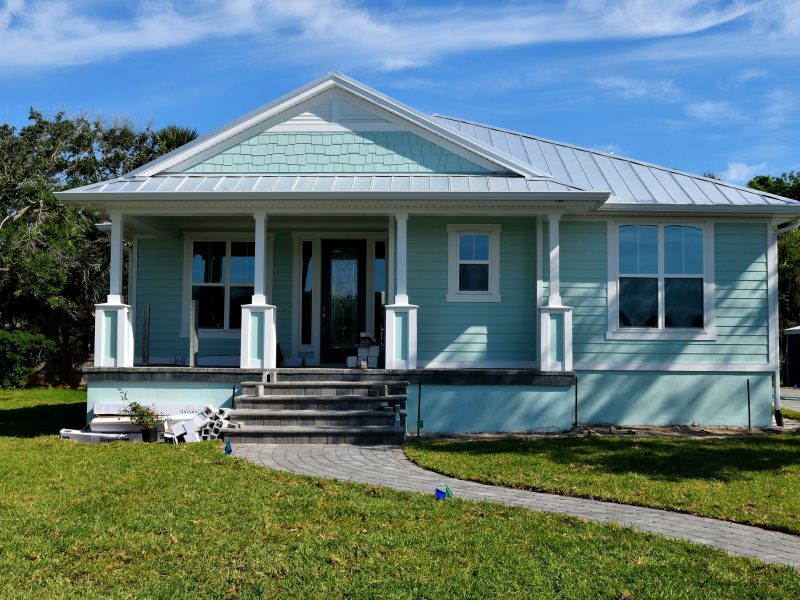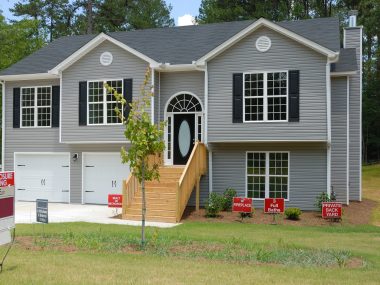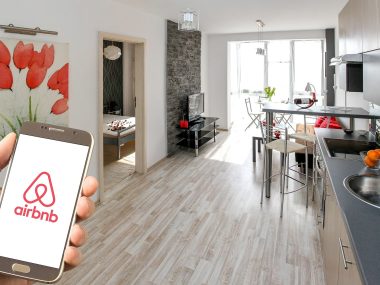Unoccupied property insurance or vacant property insurance is a unique form of protection insurance designed to provide coverage for property owners whose properties are temporarily vacant or unoccupied. There are various reasons why your property is vacant; it can be due to renovations, a change in ownership or a tenant’s departure. Unoccupied properties are more susceptible to a range of risks that may not be covered under the standard homeowners’ insurance policies. The purpose of this insurance is to mitigate these risks and offer property owners peace of mind during times of vacancy.
Unoccupied property insurance would typically provide coverage for properties that have been vacant or unoccupied for a certain period, typically 30 to 60 consecutive days. A standard homeowners’ insurance policy may become void or offer reduced coverage after 30 to 60 days, leaving the property owner exposed to potential financial losses resulting from incidents such as theft, vandalism, fire, water damage, and more.
Key Coverage areas available with Unoccupied property insurance
Unoccupied property insurance typically provides coverage in the following areas:
- Property Damage: This coverage protects the property against damage caused by perils like fire, storms, vandalism, and malicious acts. It ensures that repairs or replacement costs are covered in case of such events.
- Liability Coverage: Liability protection is included to cover legal costs and damages in case someone is injured on the property during the period of vacancy.
- Theft and Vandalism coverage helps reimburse losses resulting from theft of belongings and damage caused by vandals.
- Water Damage: Water leaks or burst pipes can cause extensive damage if not addressed promptly. Unoccupied property insurance often covers water damage resulting from sudden and accidental incidents.
- Additional Perils: Depending on the policy, additional coverage may be provided for perils like earthquakes, floods, and other specific risks.
Different types of Unoccupied Property Insurance
- Basic Unoccupied Property Insurance: This type of insurance provides coverage for essential risks such as fire, vandalism, and theft. It’s a minimal coverage option suitable for short periods of property vacancy.
- Full Peril Unoccupied Property Insurance: This type of insurance offers broader coverage, including protection against a wider range of risks, such as water damage, natural disasters, and other perils. It provides more comprehensive protection compared to basic coverage.
- Named Peril Unoccupied Property Insurance: With this type of coverage, you choose specific perils you want to be covered against. Common perils might include fire, vandalism, and theft. This can be a cost-effective option if you’re concerned about specific risks.
- Liability Coverage: In addition to property protection, liability coverage can be included to protect property owners from legal claims related to injuries or accidents that occur on the unoccupied property.
- Builder’s Risk Insurance: If you’re renovating or making substantial changes to an unoccupied property, builder’s risk insurance can provide coverage for the property and materials during the construction or renovation period.
- Vacant Land Insurance: If you own vacant land without any structures, you might need insurance to cover liabilities and potential risks associated with the property, such as injuries or accidents that might occur on the land.
- Short-Term Unoccupied Property Insurance: If your property will be vacant for a short period, such as a few weeks or months, you might find short-term insurance options that offer coverage specifically for that duration.
- Long-Term Unoccupied Property Insurance: If your property is likely to be unoccupied for an extended period, you can find insurance policies tailored for long-term vacancy, offering ongoing protection against a variety of risks.
- Seasonal Unoccupied Property Insurance: If you have a vacation home or a property you only use during specific seasons, seasonal unoccupied property insurance can provide coverage when the property is not in use.
Factors that affect the amount and price of coverage
Several factors influence the coverage and cost of unoccupied property insurance:
- The length of time the property will remain vacant is a significant factor. Policies and premiums may differ for short-term versus long-term vacancies.
- The location of the property plays a role in determining the risk profile. Properties in high-crime areas or regions prone to natural disasters may have higher premiums.
- The presence of security measures such as alarm systems, surveillance cameras, and secure locks can impact the policy’s cost and coverage.
- The condition of the property before vacancy matters. Well-maintained properties are considered lower risk and may receive more favorable coverage.
- The type and purpose of the property, such as residential, commercial, or industrial, will have varying risk profiles that affect coverage.
Scenarios where coverage may not apply
Common exclusions in unoccupied property insurance include:
- Regular Maintenance: Insurers might require property owners to perform regular maintenance tasks, such as inspections and upkeep, to prevent issues that could have been avoided.
- Gradual Damage: Damage that occurs gradually over time, like wear and tear or gradual water leaks, might not be covered.
- Unauthorized Occupancy: If the property is illegally occupied during the vacancy period, coverage may be invalidated.
- Negligence: If the property owner is found to have been negligent in preventing damage or securing the property, the policy may not cover resulting losses.
- Unreported Changes: Changes in property status, such as renovations or changes in ownership, should be promptly reported to the insurer to ensure continued coverage.
Popular companies that offer unoccupied property insurance
- AXA: AXA is a well-known insurance provider that offers various types of property insurance, including coverage for unoccupied properties.
- Aviva: Aviva is another major insurance company that provides coverage for unoccupied properties. They might offer options to suit different levels of coverage and durations of vacancy.
- Direct Line: Direct Line is a UK-based insurance company that may provide coverage for both short-term and long-term vacancies.
- Towergate Insurance: Towergate specializes in providing insurance for unique and complex situations, including unoccupied properties. They might offer customizable coverage options.
- HomeProtect: HomeProtect is known for offering insurance for properties with non-standard circumstances, including unoccupied properties. They may have policies tailored to different levels of risk.
- Insure4Retirement: This company focuses on providing insurance solutions for those in retirement, including coverage for unoccupied properties, which might be useful for seasonal or vacation homes.
- UKinsuranceNET: UKinsuranceNET offers various property insurance options, including coverage for unoccupied properties. They may have policies suitable for both short and long durations of vacancy.
- Tower Insurance: Tower Insurance is a New Zealand-based company that offers coverage for unoccupied properties, suitable for both residential and commercial properties.
- State Farm: In the United States, State Farm and other similar insurers may offer endorsements or specific coverage options for unoccupied properties, depending on your location and their policies.






